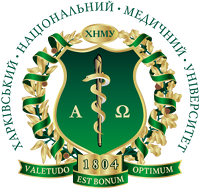Please use this identifier to cite or link to this item:
http://repo.knmu.edu.ua/handle/123456789/31584| Title: | Characteristics of psycho-emotional state of parents of children with paralytic syndromes and its changes during rehabilitation measures |
| Authors: | Orlova, Natalia |
| Keywords: | children with paralytic syndromes psycho-emotional state chronic pain physical rehabilitation |
| Issue Date: | 2022 |
| Citation: | Orlova N. Characteristics of psycho-emotional state of parents of children with paralytic syndromes and its changes during rehabilitation measures / N. Orlova // Inter Collegas. – 2022. – Vol. 9, No.1. – Р. 36–44. |
| Abstract: | The current strategy for the treatment of chronic pain in children with paralytic syndromes and neurological lesions was defined by the WHO recommendations in 2012. These recommendations provide a multimodal approach of analgesia for the chronic pain treatment, including the widespread use of non-pharmacological methods and pharmacological therapy. Aim. Assessing the subjective vision of parents of children with paralytic syndromes regarding the impact of physical rehabilitation on chronic pain and their psycho-emotional state. Materials and methods. The study involved data from 64 children and their mothers (64 persons). The age of the children ranged from 1 to 6 years, the median age was 3 years and 3 months. Results. The changed psycho-emotional state of parents of children with paralytic syndromes is determined. If the child has chronic pain, the parents’ "Concern about the treatment of the child" is doubled (RR=2.1; p=0.0024), "Hyperopia of the child" ‒ twice (RR=1.9; p=0.0094), "Intolerance to observe the suffering of the child" - one and a half times (RR=1.6; p=0.0017), and "Sadness and anger when a child cries" (RR=1.5; p=0.0122), "Internal tension" (RR=1.5; p=0.0029), "Insomnia" (RR=1.5; p=0.0215), "Inability of the child to lead a normal image life" (RR=1.5; p=0.0035), "Search for compassion or understanding" (RR=1.5; p=0.0446), "Inner anxiety, feeling of possible trouble" (RR=1.5; p=0.0074) increase one and a half times. After receiving rehabilitation measures, the psycho-emotional state of the parents of children with paralytic syndromes was determined to decrease: "It is intolerable to observe the child's condition" decreased by 31.3% (p=0.0012); "Feelings of inner anxiety" decreased by 24.5% (p=0.0125); "I fall asleep badly due to the child's condition" decreased by 20.6% (p=0.0109); "Internal tension" decreased by 19.6% (p=0.0269); "Sleepless nights due to the condition of the child" decreased by 18.6% (p=0.0401). Conclusion. The authors consider that physical rehabilitation in children with paralytic syndromes reduces the incidence of moderate chronic pain and improves the emotional state of parents. So, we think that new approaches to rehabilitation should be applied with daily management of the children with paralytic syndromes’ needs and their families with increased psychological and social support. Perhaps the searching for new approaches that optimize more intensive and effective rehabilitation strategies using the family reserve will provide the potential for adaptability of nerve plasticity and recovery in such a contingent of children and prospects for the future. |
| URI: | http://repo.knmu.edu.ua/handle/123456789/31584 |
| Appears in Collections: | Наукові праці. Кафедра педіатрії № 1 та неонатології |
Files in This Item:
| File | Description | Size | Format | |
|---|---|---|---|---|
| Характеристика психо-емоційного стану батьків.pdf | 215,98 kB | Adobe PDF | View/Open |
Items in DSpace are protected by copyright, with all rights reserved, unless otherwise indicated.

